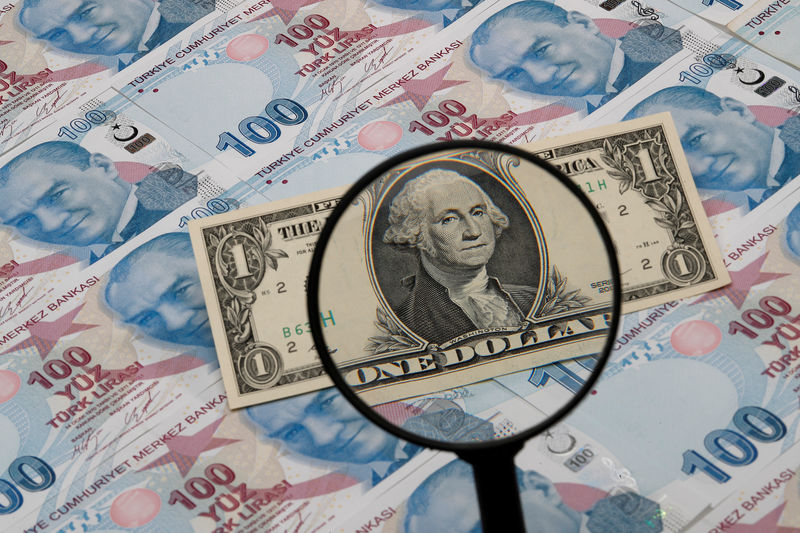Erdogan’s Interest Rate Remarks Trigger Lira’s Decline, Raising Concerns Over Turkey’s Monetary Policy
The Turkish lira has emerged as the weakest performer among emerging market currencies, experiencing a significant drop following President Recep Tayyip Erdogan’s recent pronouncements on interest rates. Erdogan’s comments, which hinted at a more aggressive easing cycle than anticipated, have reignited fears of a return to his unconventional monetary policies, which prioritize growth even amidst soaring inflation. The lira depreciated by 0.6% against the dollar on Monday, extending its year-to-date losses to approximately 16%. This starkly contrasts with the relative stability observed in the broader emerging market currency landscape, with the MSCI’s EM currency index remaining virtually unchanged on Monday and only marginally negative for the year.
The President’s remarks, asserting a definitive decrease in interest rates next year and labeling 2025 as the “mark year” for this shift, sent ripples through the financial markets. These statements followed closely on the heels of the Turkish central bank’s first policy rate cut since 2023, a move that had already raised eyebrows among analysts. Erdogan’s insistence on lower rates, despite persistent inflationary pressures and warnings from officials against an overly aggressive easing cycle, has fueled market anxieties about the potential for a renewed currency crisis.
The market’s negative reaction to Erdogan’s pronouncements underscores the deep-seated concerns about the sustainability of Turkey’s current economic trajectory. The President’s persistent advocacy for lower interest rates, despite high inflation, clashes with conventional economic wisdom, which dictates that higher interest rates are necessary to curb inflation. This divergence in approach has led to considerable uncertainty and volatility in the Turkish economy, particularly in the currency market.
The lira’s vulnerability is further exacerbated by Turkey’s existing economic challenges, including a widening current account deficit and dwindling foreign currency reserves. These underlying vulnerabilities make the currency particularly susceptible to shifts in investor sentiment and external shocks. Erdogan’s comments, by signaling a potential return to unorthodox monetary policy, have amplified these concerns and triggered a fresh wave of selling pressure on the lira.
Analysts, interpreting Erdogan’s statements as a clear signal of intent, are now forecasting interest rate reductions at every policy meeting in 2025. This aggressive easing cycle, if materialized, could further destabilize the lira and exacerbate inflationary pressures. While the Turkish government argues that lower interest rates are necessary to stimulate economic growth, critics contend that this approach risks fueling a vicious cycle of inflation and currency depreciation, ultimately undermining economic stability.
The lira’s recent slide and the market’s apprehensive response to Erdogan’s pronouncements highlight the critical juncture at which the Turkish economy stands. The President’s determination to pursue lower interest rates, despite warnings and prevailing economic realities, poses a significant challenge to the country’s financial stability. The coming months will be crucial in determining whether Turkey can navigate this precarious path without triggering a full-blown currency crisis and further economic turmoil. The international community and investors will be closely monitoring developments, particularly the central bank’s policy decisions and the lira’s performance, for indications of the direction of Turkey’s economic future.


